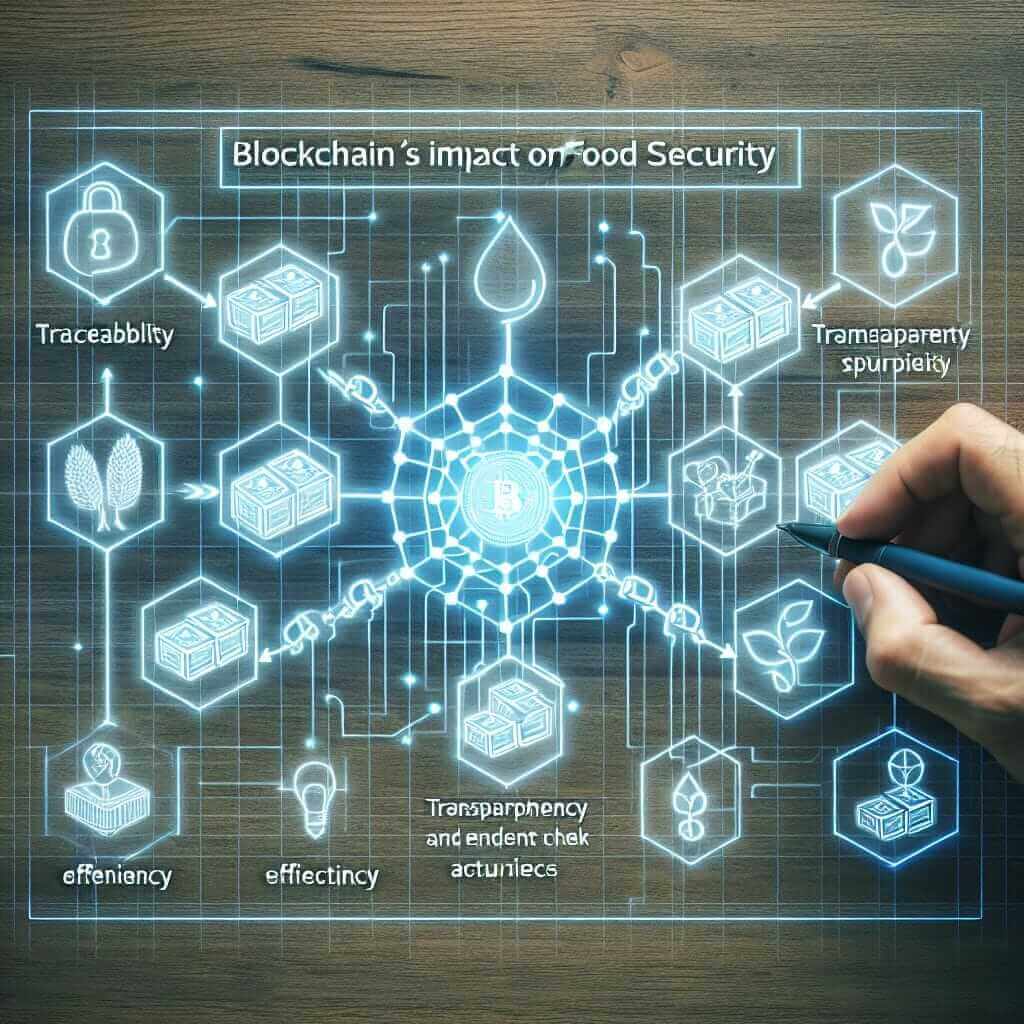The IELTS Reading section is designed to evaluate your ability to understand and interpret written English. The section consists of 40 questions to be answered in 60 minutes, requiring skills like skimming, scanning, and detailed reading. In recent years, topics related to technology and global issues have frequently appeared in the IELTS Reading tests. One such pertinent topic is the influence of blockchain technology on global food security.
Popularity of the Topic
Blockchain technology and food security are highly relevant in today’s world. Given the increasing significance of food traceability, and the high-stakes nature of global food security, this topic has a fair probability of emerging in future IELTS Reading tests. Understanding such themes can provide you not only with subject knowledge but also improve your contextual grasp for answering questions effectively.
Reading Passage: Blockchain Technology and Global Food Security
Easy Text
Title: The Influence of Blockchain on Global Food Security
Blockchain technology has drawn significant attention for its potential to transform various sectors, including agriculture and food security. It is a decentralized ledger that enables transparent and secure transactions. In the realm of global food security, blockchain technology offers numerous benefits, such as improving traceability, reducing fraud, and enabling better supply chain management.
Traceability and Transparency
In traditional food supply chains, tracing the origin of a product can be cumbersome and prone to fraud. Blockchain, however, provides an immutable record of transactions that can be accessed by all stakeholders. This transparency ensures that every step, from farm to table, is recorded, making it easier to trace the source of contamination or verify the authenticity of organic labels.
Reducing Food Fraud
Food fraud is a significant issue affecting global food security. Adulteration and mislabeling not only deceive consumers but also pose health risks. Blockchain’s secure encoding of data reduces the risk of fraudulent activities by making it nearly impossible to alter records without detection. This integrity in data ensures that consumers receive what they pay for and that safety standards are upheld.
Supply Chain Efficiency
Another advantage of blockchain in enhancing global food security is its ability to improve supply chain efficiency. Unnecessary delays and errors in the supply chain can lead to significant waste and spoilage. With blockchain, stakeholders can streamline operations through better coordination and real-time information sharing, thus reducing waste and improving the shelf-life of food products.
Questions
Multiple Choice
-
What is a major benefit of blockchain technology in the context of global food security?
- A. Increasing food prices
- B. Improving traceability
- C. Enhancing marketing
- D. Reducing production costs
-
How does blockchain help in reducing food fraud?
- A. By increasing market competition
- B. By making transactions transparent and secure
- C. By lowering the cost of production
- D. By offering discounts to consumers
True/False/Not Given
- Blockchain technology can help in reducing the amount of food waste.
- True
- False
- Not Given
- Blockchain records can easily be altered by stakeholders.
- True
- False
- Not Given
Answer Keys
- B: Improving traceability – The passage clearly mentions that blockchain technology helps improve the traceability of food products.
- B: By making transactions transparent and secure – The secure encoding of data and transparency of blockchain make it nearly impossible to commit fraud.
- True – The passage mentions that better coordination and real-time information sharing through blockchain can reduce waste.
- False – Blockchain records are immutable and cannot be easily altered.
Common Mistakes to Avoid
- Misunderstanding True/False/Not Given Questions: Carefully read to determine if the statement is supported, contradicted, or not mentioned at all.
- Skimming Too Quickly: While skimming is essential, missing key details can lead to incorrect answers.
- Overcomplicating Answers: Often the simplest and most direct answer is correct.
Key Vocabulary
- Traceability /ˌtreɪ.səˈbɪl.ə.ti/ (noun): The ability to track the origin and history of a product.
- Adulteration /əˌdʌl.təˈreɪ.ʃən/ (noun): The act of making something poorer in quality by adding another substance.
- Immutable /ɪˈmjuː.tə.bəl/ (adjective): Unchanging over time or unable to be changed.
Important Grammar Structures
- Compound Sentences: “Blockchain technology provides an immutable record of transactions, and this transparency ensures that every step is recorded.”
- Passive Voice: “This integrity in data ensures that consumers receive what they pay for.”
Study Tips
- Practice Skimming and Scanning: Enhance these skills to quickly locate information.
- Topic Familiarity: Get familiar with current global issues as they are commonly tested in IELTS.
- Regular Practice: Attempt multiple reading passages and seek to understand the logic behind answers.

By focusing on these strategies and familiarizing yourself with real-world issues like blockchain technology’s impact on food security, you’ll enhance your ability to score high in the IELTS Reading section. Happy studying!